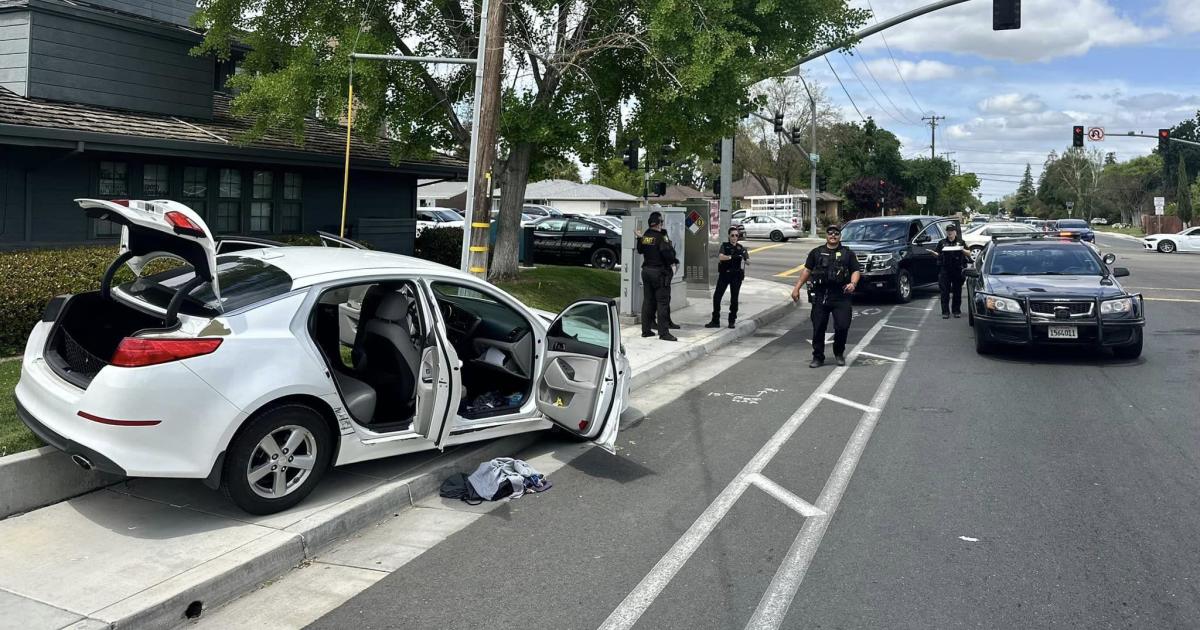Kaiser Pharmacies Receive More Opioids Than Any Other Pharmacy In Our Area
SACRAMENTO (CBS13) — New numbers indicate one pharmacy chain has been receiving more opioids in our area than anyone else.
This comes in the wake of the Drug Enforcement Administration (DEA) investigation into opioid prescriptions at Kaiser Roseville.
There was 128 opioid-related death last year in just four local counties, Placer, Sacramento San Joaquin and Stanislaus. CBS13 sifted through DEA data to see which pharmacies, in our area, historically have been ordering the most pills. It turns out Kaiser tops the list almost area-wide.
READ: Kaiser Permanente, Workers Union Reach Tentative Agreement That Would Avert October Strike
According to DEA opioid data from 2006-2012, the Kaiser pharmacy in Modesto received more pills than any other pharmacy in Stanislaus County.
In San Joaquin County, Kaiser came in second to Evergreen Pharmaceutical of California. But in Sacramento County, Kaiser Hospital Sacramento topped the list with over 12 million pills. The Kaiser pharmacy in Roseville received the most pills in Placer County.
The DEA announced last week it is now investigating Kaiser Roseville, which, according to court documents, has already purchased more than 1.3 million doses of Hydrocodone this year, more than any other facility from Northern California to Oregon.
In response to the investigation, Kaiser explained that because Kaiser patients also fill their prescriptions at Kaiser, their pharmacies often serve many more patients than other local retail pharmacies.
Kaiser Permanente Northern California's Vice President of Pharmacy Operations, Kathryn R. Brown, issued a statement in response to this story Thursday night.
"We are fully cooperating with the DEA to provide the agency with the information they are seeking. At this time, we are unaware of any specific compliance issues prompting the administrative inspection, and we remain committed, as always, to complying with all state and federal regulations and ensuring the safety of our patients and members.
At Kaiser Permanente, we work to ensure that our pharmacies maintain tight control over all medications including controlled substances. We have an important role in making sure drugs are available only for legitimate use, and we take that responsibility seriously.
When discussing volume from any single pharmacy, an important thing to understand is that due to our integrated system – in which our members and patients primarily only use Kaiser Permanente pharmacies – our pharmacies can dispense many more prescriptions per location than most other local retail chain pharmacies, which are smaller and have far more locations in most communities.
In some communities, including Roseville, there can be dozens of retail chain and independent community pharmacies, and only a few Kaiser Permanente pharmacy locations. In fact, according to data from the National Community Pharmacist Association, total prescription volume at our Roseville pharmacy is more than 10 times the size of an average retail pharmacy, due to the number of Kaiser Permanente members who use it as their retail pharmacy pickup location.
If you're interested in learning more, we'd be proud to share information about our work over the past decade to become a leader in the national effort for safe opioid stewardship. We have dramatically reduced our members' risk for opioid abuse and addiction through improved prescribing policies, monitoring and follow-up processes, and coordination across departments and specialties. From 2011-2017, we reduced the prescription of opioids across Kaiser Permanente members and patients by nearly 40%.
Our approach focuses both on prevention of opioid addiction upstream, as well as care to address opioid misuse and addiction. Our integrated care delivery system and coordination make our opioid management program possible –– and successful. In our model, members, providers, hospitals, medical offices, pharmacies, and laboratories are linked together in one system. Physicians and care teams from our primary and specialty care, pain management, and addiction medicine departments work closely with each other and with our pharmacists –– to provide effective pain relief while limiting the risk for opioid-related complications."



